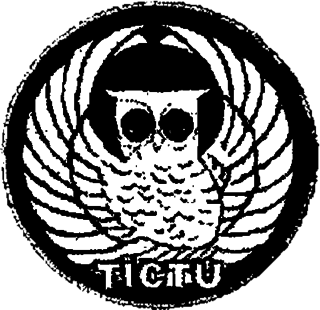Lincoln, manufactured by the company Pen-Link, Ltd., is a class of electronic data interception products—including both computer hardware and software packages—whose function is to extract and analyze internet traffic for mass surveillance purposes, such as those outlined under the Communications Assistance For Law Enforcement Act (CALEA).

In espionage and counterintelligence, surveillance is the monitoring of behavior, activities, or other changing information for the purpose of influencing, managing, directing, or protecting people. This can include observation from a distance by means of electronic equipment or interception of electronically transmitted information. It can also include simple no- or relatively low-technology methods such as human intelligence agent and postal interception. The word surveillance comes from a French phrase for "watching over" and is in contrast to more recent developments such as sousveillance.

Mass surveillance is the intricate surveillance of an entire or a substantial fraction of a population in order to monitor that group of citizens. The surveillance is often carried out by local and federal governments or governmental organisations, such as organizations like the NSA and the FBI, but it may also be carried out by corporations. Depending on each nation's laws and judicial systems, the legality of and the permission required to engage in mass surveillance varies. It is the single most indicative distinguishing trait of totalitarian regimes. It is also often distinguished from targeted surveillance.
Lincoln systems enable law enforcement and intelligence agencies to monitor numerous types of intercepted electronic communications—including telephone (landline & wireless), VoIP, 3G and IP (web/email/IM traffic).
3G, short for third generation, is the third generation of wireless mobile telecommunications technology. It is the upgrade for 2G and 2.5G GPRS networks, for faster internet speed. This is based on a set of standards used for mobile devices and mobile telecommunications use services and networks that comply with the International Mobile Telecommunications-2000 (IMT-2000) specifications by the International Telecommunication Union. 3G finds application in wireless voice telephony, mobile Internet access, fixed wireless Internet access, video calls and mobile TV.
The Internet Protocol (IP) is the principal communications protocol in the Internet protocol suite for relaying datagrams across network boundaries. Its routing function enables internetworking, and essentially establishes the Internet.
Lincoln systems are generally implemented along with other Pen-Link products to enable features such as databases to store intercepted communications, mapping software (to monitor the locations of surveillance targets), visualization software, and link analysis features.

Social network analysis (SNA) is the process of investigating social structures through the use of networks and graph theory. It characterizes networked structures in terms of nodes and the ties, edges, or links that connect them. Examples of social structures commonly visualized through social network analysis include social media networks, memes spread, information circulation, friendship and acquaintance networks, business networks, social networks, collaboration graphs, kinship, disease transmission, and sexual relationships. These networks are often visualized through sociograms in which nodes are represented as points and ties are represented as lines. These visualizations provide a means of qualitatively assessing networks by varying the visual representation of their nodes and edges to reflect attributes of interest.







